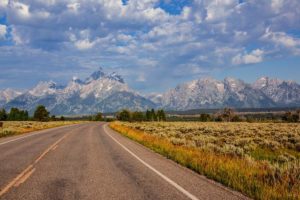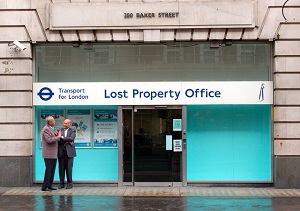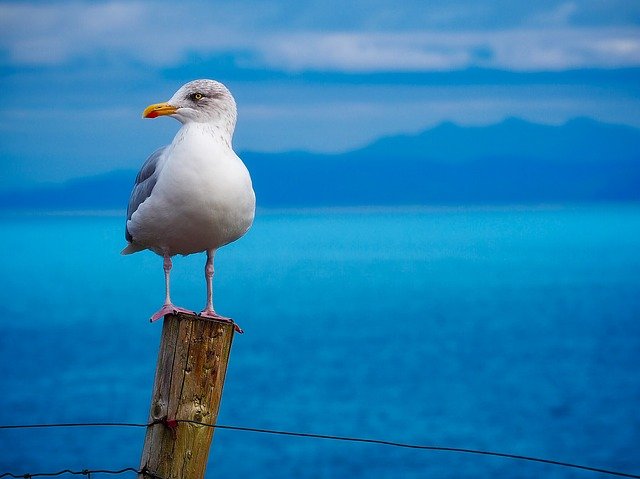You have no items in your cart. Want to get some nice things?
Go shopping
I watched Tess stare out the window as the scenery rolled by. She pulled at her flowing jumper and stretched, leaning back in her seat and glancing from side to side, trying to take it all in. “I can see why they call it ‘Big Sky Country,’ Daniel.”
“The sky is spectacular,” I answered, keeping my eyes on the road. “And so is the incredible landscape.” Tess and I had agreed that one last road trip – San Francisco to Montana and back – would be a good break and help us prepare for the baby’s arrival. More than that, I knew I needed a little more time to sort things out in my head. It’s one thing to agree to start a family; it’s another to become the person – the dad – I wanted to be.
“Montana has its own unique beauty,” Tess continued.
“It’s a big ass state, that’s for sure. We can go miles and miles without seeing a town.”
“Or a restaurant.”
Her comment nudged me closer to dad mode. “Are you doing okay? Do we have any food left from this morning?”
“You know we don’t.” Tess grabbed the canvas grocery bag. “Empty. And I’m hungry.” Seven months pregnant, Tess made a point of being as healthy as possible: exercising, getting a good night’s sleep, hydrating, eating fruits and vegetables. She was doing her part, and I wanted to do everything I could to support her, but taking care of Tess was only one of the things I needed to do.
40 minutes down the road, we came to a lonely intersection; I slowed as we crossed train tracks and approached a handful of buildings: a gas station, a feed store, two grain elevators, and a coffee and ice cream stand operating out of a trailer.
“We better stop,” I said, pointing to the GPS. “It’s another long stretch before the next town.”
“You do take good care of me . . .” Tess smiled and reached across the seat to squeeze my hand. “I know you’ll make a good dad.”
I grinned, but I knew that following up on the obvious things for Tess and for the baby would be the easy part. Changing my personality would be a hell of a lot more work.
We parked at the ice cream trailer, and a lanky teenage boy in a droopy tank top approached from the back of the feed store. “Hillbilly Elegy, here we come,” I said.
“Stop that,” Tess replied.
The boy hesitated for a moment, spat, then wiped his lips with the back of his hand. I rolled down my window and the boy hollered, “You want some ice cream or a coffee?”
I squinted at a chalkboard on the trailer’s side that listed a variety of sundaes and milkshakes. “Do you have any fruit? Any vegetables?”
The boy cocked his head. “Just coffee and ice cream, mister, like the sign says.”
I stared at the kid, thinking of all the things I could say, but Tess leaned toward me and whispered, “Ice cream isn’t a meal,” which brought me back to reality.
I shifted gears. “You’ve got banana splits,” I said evenly, “could you cut up a couple bananas for us?”
He shrugged. “I suppose so . . .”
Five minutes later, Tess ate banana slices as the Montana landscape flew by.
“There’s a town,” I said, glancing at the GPS, “looks like . . . an hour from here.”
The scenery was epic: wide red-orange mesas with green collars of long-needle pine, all of it under an immense cobalt sky. Ensconced in quiet, air-conditioned comfort, Tess leaned farther back in her seat. The ride felt smooth, almost as if Montana barreled by while we stood still.
A little more than an hour passed, and we arrived at a small town, this time stopping at a hamburger joint the size of a garage. I parked, and we walked toward the restaurant as the wind kicked up, flattening Tess’s jumper against her belly.
“I’m wearing a jumper as big as a tent,” she said, “and people can still tell I’m pregnant from a mile away.”
I checked my usual off-the-cuff humor, the biting satire I was only too well-known for, and instead said, “You look healthy.”
“That’s for sure.”
Inside the restaurant, our eyes adjusted to fluorescent lights as we looked at a counter with five barstools. A middle-aged man wearing a greasy apron stubbed out a cigarette and swiveled from one of the stools. He handed Tess a menu. “Have a seat, ma’am,” he said while looking for another menu.
Neither of us sat down.
“I don’t see anything healthy,” Tess said in a low voice, handing me her menu and leaning heavily on the counter.
“No,” I answered, “but they do feature the best bison burgers in Montana . . . says so right here.”
Tess gave me a look as the man in the apron motioned us to the barstools.
“I’m really hungry for something healthy, Daniel.”
“Look,” I said, turning to the man, “I know it’s not on the menu, but could we get a salad?”
“Ahhh . . . we don’t have salads.”
‘And why is that?’ was the first thing that came to mind, but I held back. “Okay… could you help us out? You have hamburgers with lettuce and tomatoes and onion. Could you cut up some of that, you know, like a little salad? My wife is pregnant and . . .”
“Sure.” The man smiled and turned to Tess. “You doing okay? When are you due?”
After getting the salad to go, we drove for another hour, passing several exits with “No Services” signs before coming across another town. “Good thing,” I said. “We’re low on gas.”
Stopping and filling the car, I squinted farther down the main street and spotted a large plywood sign: “FOOD” in red block letters.
Tess rolled down her window and pointed to the sign. “Okay, I need a meal now . . . a real meal.”
I nodded.
“Thanks,” she said, the lines on her forehead relaxing. “At this point, I could eat diesel-fried chicken. Just tell me it comes with vegetables.”
We drove to the restaurant and parked, and I walked around to Tess’s door to help her out. Stepping into a small, dark foyer, we approached another door with “La Petit Brazier” handwritten overhead.
“Christ…,” I said, pushing open the door. “They couldn’t afford–” I stopped as Tess and I took in our surroundings: six small tables, each covered with a white linen tablecloth and a single red rose in a narrow crystal vase. The place was immaculate. “We’re not in Montana anymore,” I said. Although I was impressed, I couldn’t help adding, “the outside needs a fresh coat of paint, though.”
“I think this looks great,” she whispered back.
A diminutive, weathered man wearing a white chef’s jacket came out of the kitchen and greeted us. “Welcome,” he said, bowing slightly to Tess. “Bienvenue. Dinner for monsieur et madame this evening?”
“Thank you,” Tess said, sitting down. “This is lovely.”
“Merci, madame.” He handed us menus.
Tess looked up and smiled, cocking her head. “Are . . . are you from here?”
“Ah, no, madame,” the man chuckled, “you can tell, perhaps, from my accent, I am a Frenchman. From Lyon.”
Scanning the menu, I asked, “What would you recommend?”
The man leaned forward and pointed to an item. “The duck, perhaps?”
“Perfect,” Tess said, “as long as it comes with some fruit or vegetable . . .”
“But of course, madame.”
“Great,” I said, “we’ll both have the duck.”
The man retreated to the kitchen as a waiter in a crisp white tunic approached with two crystal glasses of water with lemon wedges. Tess looked up at the waiter, then glanced back down. I stared until I caught myself. In contrast to the impeccable tunic, the waiter was grizzled and worn. Lots of miles on the old bastard, I thought. His hair, thick and iron gray, was pulled back in a ponytail. His beard was gathered and tied with a short leather string.
“Thank you,” Tess said as he set the glasses down.
The waiter nodded, revealing a number of gold chains running under his shirt collar, along with neck tattoos to match the ones on his hairy arms.
As he retreated to the kitchen, I looked at Tess, then broke into a wide grin. “Bet he’s not from France. The guy looks like an ex-con.”
“Don’t judge,” Tess whispered.
“Yes, Your Honor.”
She wrinkled her brow. “I mean it.”
I leaned back, a little chastened. “Okay, you’re right,” I admitted, “but I’m not judging. I’m going by appearances.”
“That’s what judging is.”
“Sorry.” Now I felt defensive. “I can’t help how he looks.” I focused on my water glass. “For all I know, he could be a kindergarten teacher, or maybe he’s a ballet dancer.”
Tess’s look darkened.
“Maybe he’s studying to be a priest.” I was trying to kid my way out of it, even though I knew that strategy didn’t work anymore.
“What difference does it make? It’s still no reason to judge someone.” Tess looked away and softened. “C’mon . . . that’s not the real you. You’re going to be a dad, and I’m going to be a mom.” She pointed to her belly. “And someone will be learning what to say by what we say. If being judgmental is okay for you and me, being judgmental will be okay for them too.”
“Alright . . . alright.” I raised a hand in surrender. Besides knowing she was right, it washumbling to realizeshe knew me better than I knew myself. We sat in silence until the waiter brought our salad.
“Mmmm, that looks delicious,” Tess said, and she was right.
Our dinner arrived, and it was delicious too. We savored herb-roasted zucchini, maple-glazed carrots, and duchess potatoes which looked like golden pinwheels. The duck was fantastic.
40 minutes later, I leaned back in my chair. “That was outstanding.”
The waiter returned to ask about dessert.
“I’m so full,” Tess said. “No, I couldn’t. But dinner was perfect.”
I paid the bill and, smiling at Tess, extended my hand to help her up. The waiter stood next to the door and gently pushed it open. With his other hand, he reached down and picked up a wicker basket, which he extended to Tess.
“Oh,” Tess said, taking a step back.
“It’s for you.”
“For us?” Tess glanced at me, then back at the waiter. “I don’t know what to say.”
“Don’t say anything,” the waiter replied.
“That’s so nice . . .” Tess took the basket in both hands. It was covered with a red-and-white-checkered cloth, which I gently lifted, spotting three small baguettes, a bunch of green grapes, a pear, two bottles of Perrier, and what looked like a gooseberry tart.
“Whoa—that’s kind of you. Here.” I pulled out my wallet again. “Let me–”
But the waiter raised his hand, stopping the conversation. The three of us stood silent for a second, then he narrowed his eyes and said in a low voice, “The roads are long in Montana.”
Tess turned toward him and extended her hand. “Thanks, I mean, thank you. That’s so thoughtful of you.”
He smiled and we all relaxed. “I have four children,” he said with undisguised pride, “and nine grandchildren.”
Tess’s face lit up and, handing me the basket, she leaned in and hugged the waiter. I sensed an energy between us, something that made me calm, maybe for the first time this trip.
“You stay healthy,” the waiter told Tess as he nodded. Then he turned and looked at me. “And you – dad – you take care of her.” He paused, then tapped a finger on my chest. “You’ve got a job ahead of you, but you’re up to it.” Then he grinned, “Am I right?”

About Mike Nolan
Mike lives in the small town of Port Angeles, WA (USA) where the mountains meet the sea, directly across from Victoria BC. He has a web presence at mikenolanstoryteller.com. Mike has been published in Backchannels Journal, Drunk Monkeys, Storgy Magazine, and Flash Fiction Magazine.



